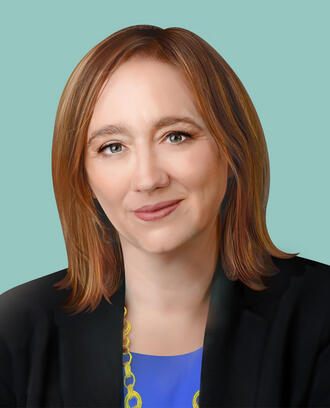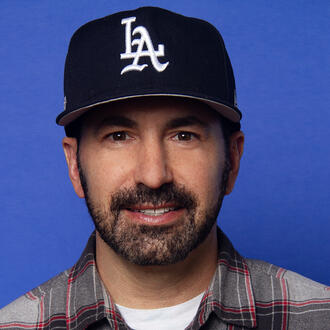Credit: Stephen Sauer
Ideas Made to Matter
Klarity CEO: Find a world-changing idea. Then stick with it
By
Five years ago, Andrew Antos was working on a great idea. His new company, Klarity, would use artificial intelligence to review legal documents — starting with non-disclosure agreements — and save firms money that otherwise would have gone to attorneys or an in-house legal team. The idea for the company was developed while Antos, a Harvard Law School student, was cross-registered in MIT Sloan’s New Enterprises course.
By 2020, Klarity had pivoted after finding that “selling SaaS to lawyers is very difficult,” Antos said. “Lawyers are the only people who actually enjoy reviewing documents — it’s their main job — and they don’t want to automate it away.” Today, the company’s software is still automating document review, but its focus is on contract review for the accounting function.
And it appears that accounting professionals want it. Earlier this year, Klarity landed $18 million in Series A funding. So even as venture capital funding slows, Antos spends every day focused on startup growth. We asked him to answer our question set about critical skills, new ideas, unexpected lessons, and his daily routine.
What skill or ability has served you well in your work?
Anti-fragility. Starting a company is a constant movement of one step forward, two steps back, and being anti-fragile is the most important thing to learn to deal with such setbacks.
Anti-fragility happens when a company not only survives a shock, but gains from it as well. Even when things are going well, you get one setback after another. If you are weak, you give up quickly. If you’re strong, you give up after a longer period. I’ve seen this again and again. If you’re anti-fragile, you can keep going on forever because every setback makes you better and stronger. This is essential because business is an infinite game.
What is the most difficult lesson you’ve learned in your professional life? In what unexpected way did you grow from it?
Enterprise sales. It took me three years to learn how to generate leads, qualify customers, run proof of concepts, negotiate, and close deals. The unexpected learning was that I got much better at communication.
Related Articles
Communication is essential for every founder and executive. In order for your team, customers, etc. to do what you want, they first need to understand what you want them to do. I focus a lot of time on trying to empathize with people and understand how they view the world and what is important to them. This allows me to give them a message that they understand.
The core of the Klarity product started this way: We were going to accounting teams and were asking them what their document review workflow looked like. We asked questions like: Do you read a lot of documents? If yes, what do you do with them? Is there an output? What are the key problems with that workflow? How would you frame the pain points?
What we ultimately found out was that the “job to be done,” using Clayton Christensen's nomenclature, is not really document review — that's necessary but not sufficient — but rather completion of a “revenue checklist” which is populated by extractions from the document but also many other data points from different systems.
How do you and your team keep track of new ideas?
Ideas are important, but execution is 10 million times more important. We use a combination of Zoom calls, the collaboration software Asana, and spreadsheets to make sure that we are executing well.
What routine keeps you happy, healthy, or productive? Why?
Work out every day before starting to work, and intermittent fasting from 8 p.m. to noon the next day. I only eat two meals and some healthy snacking in the meanwhile. I started because my co-founder did and then I read up on the science behind it and it made a lot of sense. That and exercise help me stay healthy and productive.
How do you manage stress, overload, or burnout?
My daily workout routine and a disciplined approach to my daily schedule. I work out every day from 6 - 7 a.m. or 7 - 8 p.m. and have a standing treadmill desk where I try to spend at least five hours every day. I try to have a good mix of cardio and weightlifting. I reserve at least two hours of focus time every day (usually mid-afternoon) so I can get things done as well.
What are your most useful sources of news and information?
Bloomberg has the best balance of news that is relevant for a business leader. Everything is viewed from a business angle, and it’s delivered in a very digestible way.
At MIT Sloan, we talk about ideas made to matter — ideas that are carefully developed and have meaningful impact in the world. In that context — what is your idea made to matter?
I fundamentally believe that there are only two things that matter. One: Are you working on an idea that has the potential to fundamentally change the world for the better? And two: Stick with that idea for a long time. For Klarity, the core idea never changed: We believe that humans are wasting huge amounts of time and effort reading documents that don't matter and we can use artificial intelligence to automate it away, unlocking huge amounts of human potential. It's been six years since we started. Everything but that core idea changed: target market, GTM motion, etc.
Now, our customers like Coupa, 8x8, and DoorDash shave off two to three days from every month-end accounting close, save 87% or more of time previously spent on doc review, and create a single source of truth for all of their revenue data and documents.
Read: This CEO wields transparency and openness to crowdsource ideas



